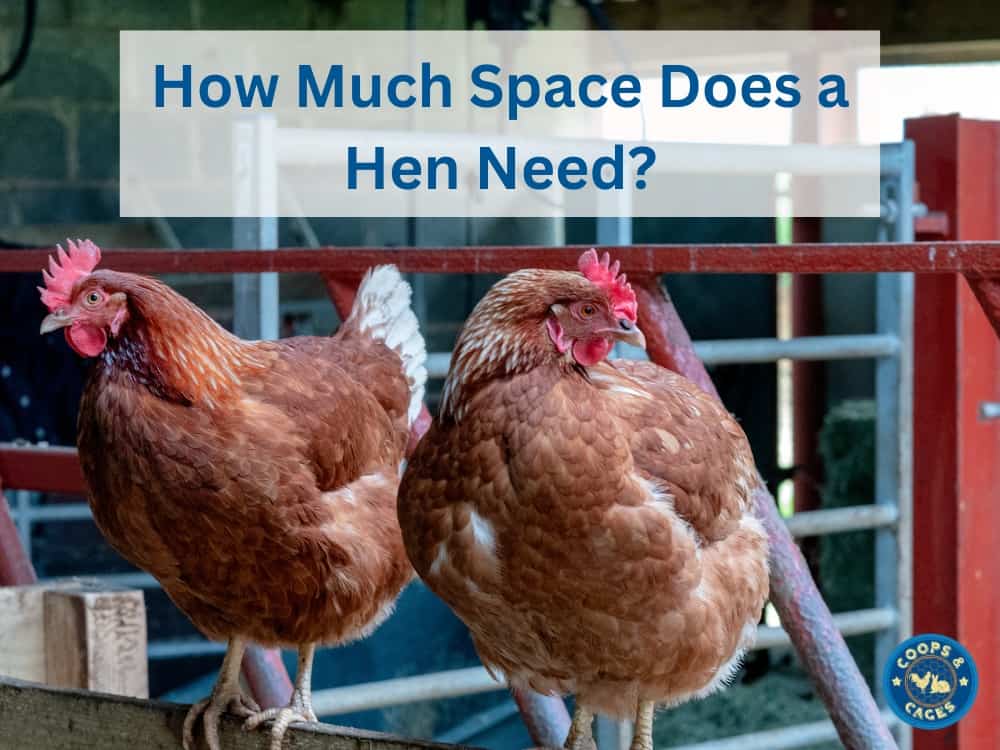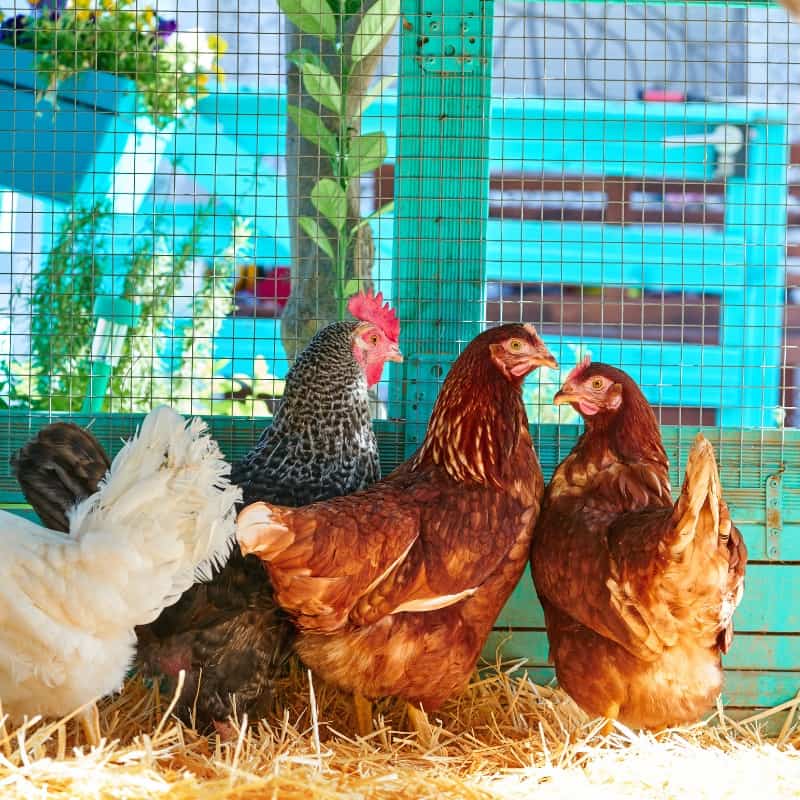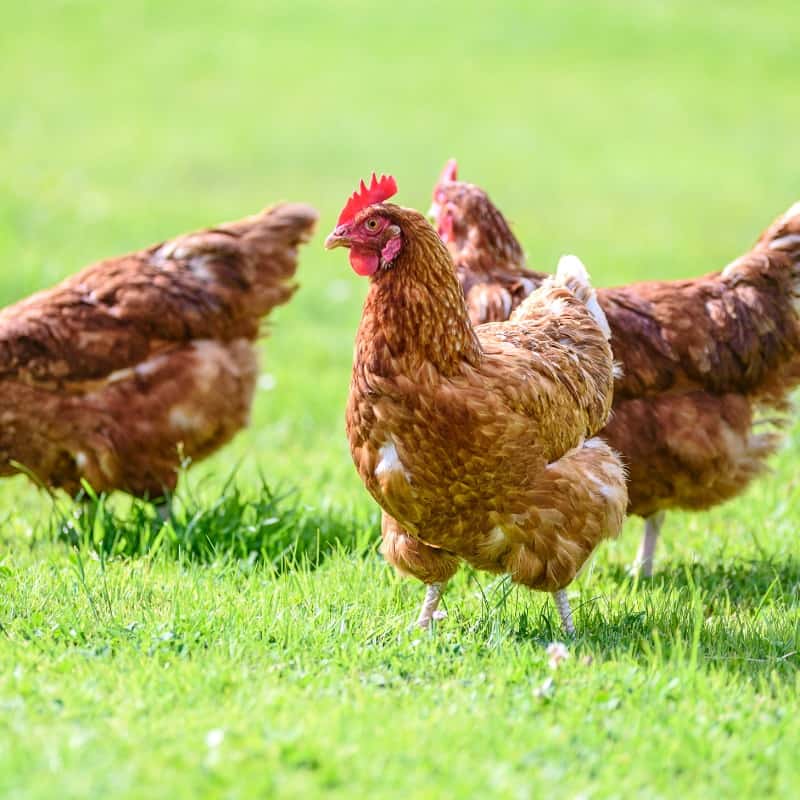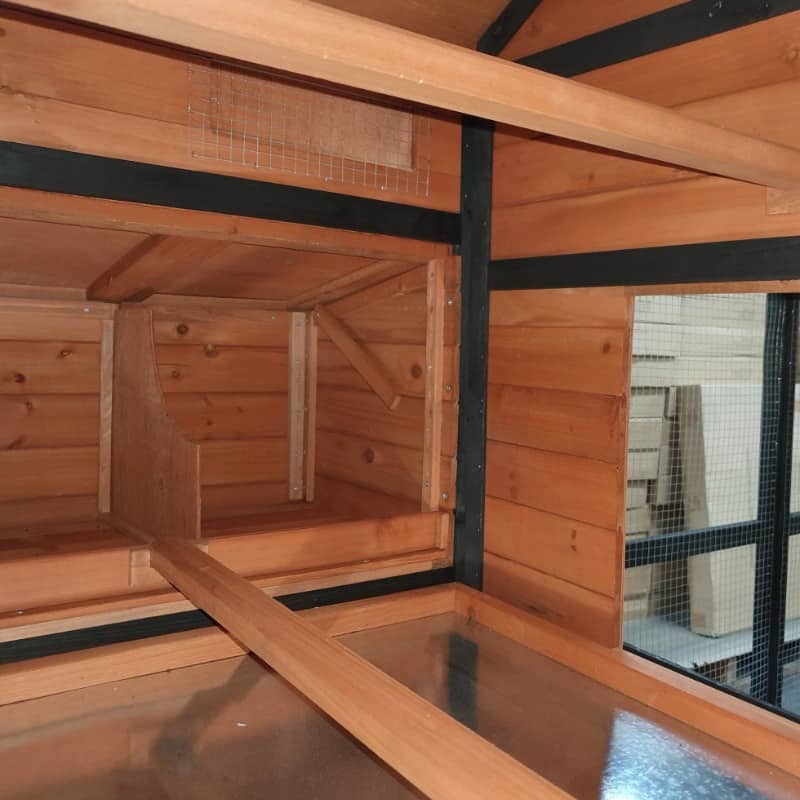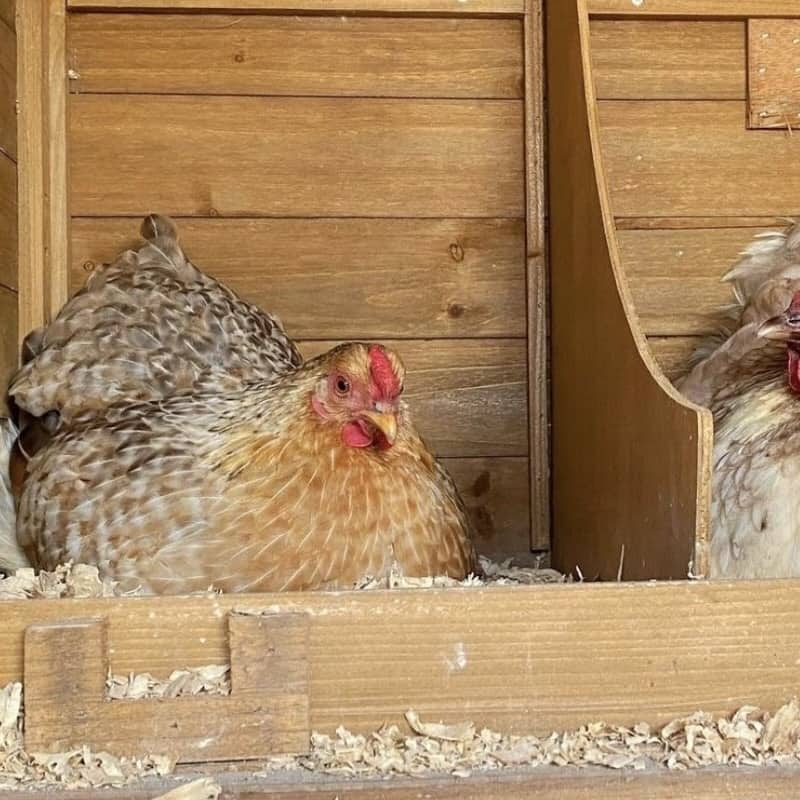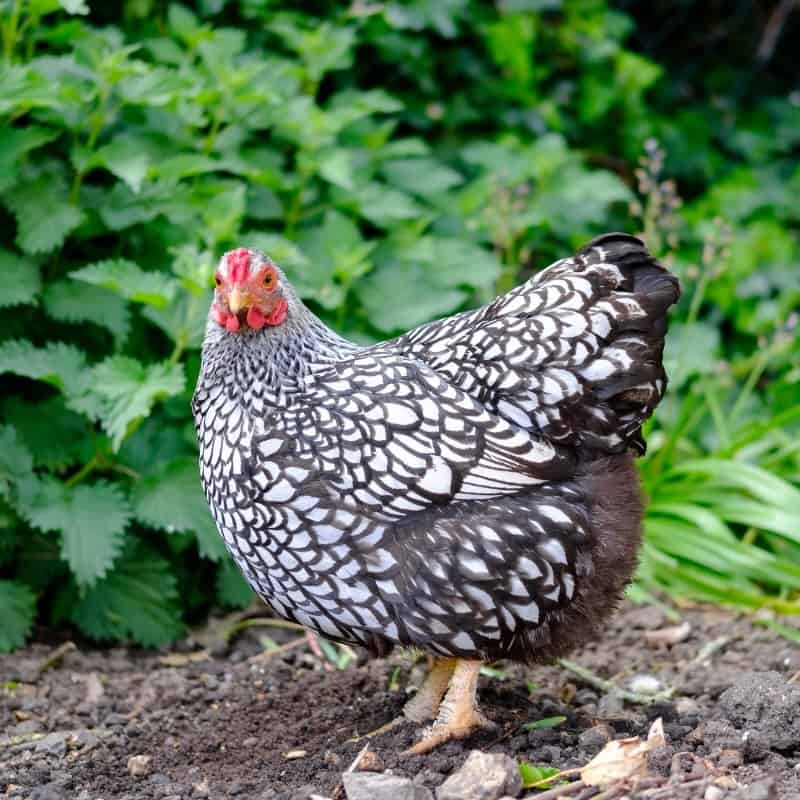Chickens, How To Do Things
How Much Space Does a Hen Need? Understanding Your Chickens
Hi, I’m Jordan. Here at Coops and Cages, we passionately advocate for the care of our feathered friends! Today, we’re going to tackle a question many of you have asked us: “How much space does a hen need?”
Understanding the needs of our chickens is essential. Not only for their happiness, but also for their wellbeing. The right amount of space affects everything from their behaviour to egg production.
We’ll dig into topics like exercise requirements for hens and why roosting space matters so much. By the end, you’ll be equipped with practical tips to help ensure your hens live their best life – whether in backyard chicken coops or commercial settings!
So join me as together we answer the question, “How much space does a hen need?”
- The Impact of Chicken Coop Sizes on Hen Behaviour and Health
- How Much Space Does a Hen Need to Exercise?
- How Much Space Does a Hen Need to Roost?
- How Much Space Does a Hen Need to Lay Eggs?
- Practical Tips for Providing Adequate Space
- FAQs in Relation to – How Much Space Does a Hen Need?
- Jordan’s Wrap
The Impact of Chicken Coop Sizes on Hen Behaviour and Health
Space is a crucial factor for hens, directly influencing their behaviour and health. Keep your chickens happy by allowing space for them to perform natural behaviours like pecking, scratching, dust bathing, and stretching their wings.
Stress and Disease Risks
A lack of adequate space can result in increased stress and aggression among your flock. This can lead to fighting, feather pulling and egg eating.
Stress may compromise a chicken’s immune system making it more susceptible to diseases such as coccidiosis. Disease transmission becomes easier when chickens are closely packed together.
Pathogens spread faster because they’re physically closer with limited air circulation promoting dampness – an ideal breeding ground for bacteria. Stressful conditions can also cause decreased egg production.
Nutritional Competition
Hens that have insufficient room might not get enough food or water due to competition from more dominant birds in the pecking order. This can lead to nutritional deficiencies causing other health problems over time.
It is a good idea to provide multiple feeders and drinkers within the coop so all chickens have fair access.
Comfort and Well-being
Just like humans, hens need personal space to feel happy. A hen who can’t stretch her wings or dust bathe because of limited room may suffer from discomfort.
An important part of raising chickens is being responsible for your flock’s happiness and valuing animal welfare.
Jordan’s Tip:
Ensuring ample space for hens is crucial to their health, behaviour and overall well-being. It’s vital that they have enough room to perform natural behaviours like pecking and stretching their wings. Overcrowding can result in increased stress levels and decreased egg production.
How Much Space Does a Hen Need to Exercise?
To maintain a hen’s health and happiness, exercise is crucial.
The Importance of Space for Exercise
Hens aren’t just egg-laying machines; they’re lively creatures who enjoy staying active. Regular physical activity helps keep their cardiovascular system healthy while strengthening bones and muscles.
Allowing ample room ensures healthier, happier birds which may directly improve egg laying performance.
Free Range
The amount of outdoor space a hen needs depends on whether she lives inside her coop full time or if she is allowed to free range in your backyard each day. If your hens are housed in a backyard chicken coop full time, aim for at least 1 square metre (10 square feet) of outdoor run space per hen.
However, you should try to buy the largest size coop you can accommodate to keep your flock happy. For chickens living in smaller coops, they will need to be let out to roam in your backyard daily.
How Much Space Does a Hen Need to Roost?
Roosting is an integral part of a hen’s life and understanding the necessary conditions can help ensure your flock remains healthy and content.
Why is Roosting Important?
Chickens sleep at night perched on roosts, helping them feel secure. This behaviour comes from their wild ancestors who slept in trees to stay safe from predators on the ground.
Perching is also important because it keeps them warm during winter as they are raised off the cold ground. The best material for roosts is untreated wood with rounded edges that their feet can grip.
Determining Adequate Roost Space
Adequate roost space prevents overcrowding and promotes harmony among your feathered friends. To give each hen enough room, you need around 20-30 cm (8-12 inches) of perch length per chicken.
Leave a decent gap between each row of roosts – about 30 cm (12 inches). This ensures every hen has ample room for moving between the perches.
Roost Height
The height of the roosts is important too. Some chicken breeds prefer a roost raised high off the ground while heavy chicken breeds (like Jersey Giants) prefer roosts close to the ground.
Large size chickens tend to injure their feet by jumping down from high roosts, risking bumblefoot. Most Coops and Cages chicken coops have low roosts however the Connie Chicken Coop has 1 low roost and 1 raised roost, giving your chooks the choice of which height they prefer.
How Much Space Does a Hen Need to Lay Eggs?
Nesting boxes are enclosed areas where a hen can lay her eggs. But how much space do they need?
Egg-Laying Comfort
Just as humans prefer privacy during personal moments, chickens also appreciate having some seclusion while laying their eggs. Providing individual nesting boxes helps ensure that your hens feel safe and comfortable enough to lay regularly.
Nesting Box Space Requirements
A nesting box can fit one hen at a time. It is recommended each nesting box is approximately 30cm cubed. This gives your egg producers enough space to get comfortable without leaving them feeling too open and vulnerable.
A smaller nesting space also discourages unwanted behaviours such as hens sleeping and pooing in their nest boxes. Your coop space should feature one nesting space for every three hens. They don’t all need a nesting box each because they won’t all lay at the same time and are usually happy to share.
Jordan’s Tip:
Even if your backyard isn’t huge, you can still keep chooks happily. It’s all about using the space wisely. Create areas for them to explore and peck around in, with plenty of shaded areas during hot weather.
Practical Tips for Providing Adequate Space
The space needs of your hens can significantly impact their health and productivity. Let’s discuss some practical tips to ensure they get the room they need.
Determine Your Flock Size
Before you buy a chicken coop, you should know how many hens you plan on keeping. This will help determine the size of the enclosure needed.
Consider Individual Needs
Different breeds may have varying space requirements. For example, larger breeds like Orpingtons will require more space than smaller Bantams.
Maintain Good Hygiene Practices
If your chicken coop is too small, it will get dirty and smelly faster. This means a small coop will need to be cleaned out by you more often than a larger coop.
Think About Future Expansion
Anticipate future growth by building a larger chicken coop now to avoid costly renovations later. It’s easier and more cost-effective to build a bigger coop now than it is to extend or replace one that’s too small later.
FAQs in Relation to – How Much Space Does a Hen Need?
What Is The Recommended Space For A Hen?
A healthy, happy hen needs about 1 square metre (10 square feet) of outdoor floor space per bird.
How Much Space Do I Need For Layer Hens?
Laying hens require a nesting box of around 30cm cubed to lay their eggs. You need to provide one nesting box for every three hens.
How Much Space Do You Need For A Hen House?
The size of your actual chicken coop depends on your flock size but the minimum space recommended per bird is 1 square metre (10 square feet).
Do Hens Need A Lot Of Space?
Hens appreciate room to move. Ample coop and outdoor run areas help keep them active, productive and disease-free.
Jordan’s Wrap
Cracking the question “How much space does a hen need?” isn’t as tricky as it seems! From exercise to roosting and laying eggs – each activity has unique space requirements.
Remember that adequate room for your hens means healthier birds. More movement equals better health, and proper roosting areas keep stress levels down.
You’ve now got practical tips up your sleeve to ensure you’re giving enough space in any setting. Whether it’s backyard chicken coops or commercial farms, no chicken should feel cramped!
If there’s one thing we all learned today: when our feathered mates are happy and healthy, they reward us with productivity. So let’s give them the elbow room they deserve!



